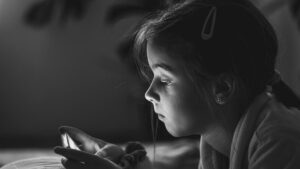The Emotional Journey of Unfulfilled Motherhood Dreams
Motherhood is often considered the pinnacle of a woman’s life journey. From a young age, many women dream of becoming mothers, nurturing a child, and experiencing the bond of pregnancy and childbirth. When this deep-rooted desire remains unfulfilled after marriage, it can result in a profound sense of loss and emotional pain. The inability to conceive often brings about silent suffering, where hope is met with heartbreak, month after month. For women facing infertility, this grief is not momentary—it is an ongoing, invisible struggle. The emotional impact of infertility includes feelings of inadequacy, isolation, and deep personal disappointment. These emotions are intensified when friends and peers begin families, leaving those who are childless feeling left behind.
Societal Pressure and the Pain of Expectations
In many cultures, a woman’s identity is strongly linked to her role as a mother. After marriage, the expectation to have children often looms large. Questions like, “When will you have a baby?” or “Don’t you want kids?” may seem casual but can be emotionally devastating for a woman dealing with infertility. These questions are asked repeatedly, especially in social gatherings, creating a constant reminder of what is missing. Often, there is no consideration of the emotional burden such inquiries place on a woman. She may begin to withdraw socially, avoiding events and gatherings where these questions are likely to surface. Over time, societal expectations can lead to anxiety and depression.
Marital Strain and Family Dynamics Amid Infertility
When a couple struggles with infertility, it can place significant stress on their marriage. Unfortunately, in many traditional households, the woman is unfairly blamed for the inability to conceive. This blame may come from in-laws or even the husband, creating emotional distance and resentment. Over time, the relationship may suffer, especially if the husband does not support his partner emotionally. Tension may arise, not only between spouses but also between the woman and her extended family. In some cases, this issue leads to ongoing disputes, making the home environment toxic. When empathy is lacking, infertility becomes not only a medical issue but also a cause for family conflict.
Mental Health Challenges Faced by Childless Women
The emotional pain of infertility can severely impact a woman’s mental health. Over time, feelings of sadness, guilt, and hopelessness can become chronic. The pressure to conceive, combined with the emotional rollercoaster of fertility treatments, often leads to stress and depression. Many women experience a loss of self-worth and confidence. Treatments like IVF and IUI are not only physically exhausting but also mentally draining—each failed attempt intensifies the pain. Without emotional support, women may fall into isolation and despair. It’s crucial to recognize these psychological effects and seek timely intervention. Professional counseling, therapy, and mental health support groups can provide relief and help women regain a sense of balance.
Hope Through Medical Advancements and Emotional Support
Despite the challenges, there are hopeful paths available for women facing infertility. Modern medical science has introduced several alternatives like IVF (In Vitro Fertilization), IUI (Intrauterine Insemination), surrogacy, and adoption. These options have helped many women fulfill their dreams of becoming mothers. At the same time, emotional and psychological support plays a vital role. Joining support groups or seeking counseling can ease emotional pain and provide comfort through shared experiences. A supportive partner and understanding family members can significantly lighten the emotional burden. When a woman feels valued and loved regardless of motherhood, it boosts her emotional well-being.
Redefining Womanhood Beyond Motherhood
It’s essential to shift the narrative that defines a woman solely by her ability to bear children. Womanhood encompasses much more than motherhood. A woman can find fulfillment in her career, hobbies, relationships, community service, and personal growth. Many childless women turn their nurturing instincts towards mentoring, teaching, caregiving, or supporting social causes. Their lives hold deep meaning and impact, regardless of biological motherhood. By embracing their unique identity, women can lead rich, purposeful lives. Society must recognize and celebrate the diverse paths that women choose, and not limit their worth to traditional roles. Keywords: redefining womanhood, fulfillment beyond motherhood, childless women’s identity, finding purpose without children, women’s empowerment.





Ya! it is very pain ful
I wish you all the very best for your life. Many congratulations to you my dear
🥰🥰🥰🥰🥰🥰
yes,A woman’s life is complete when she becomes a mother.
Very good https://is.gd/N1ikS2
Good https://is.gd/N1ikS2
It’s such a beautiful sentiment about motherhood and life’s milestones. Wishing someone the best is always heartwarming. This message feels so genuine and full of love. How does becoming a mother truly complete a woman’s life?
This is such a heartfelt message! It’s beautiful to see such genuine love and warmth in your words. Motherhood is indeed a significant milestone, but I wonder if it’s the only thing that completes a woman’s life. What about her dreams, career, or personal growth? Isn’t fulfillment subjective and unique to each individual? I’d love to hear your thoughts on how other aspects of life contribute to a woman’s sense of completeness. Do you think society sometimes puts too much emphasis on motherhood as the ultimate goal? Let’s discuss!
Your message is so heartfelt and filled with love! It’s wonderful to see such positivity and warmth in your words. Motherhood is indeed a beautiful journey, but I can’t help but wonder if it’s the only thing that defines a woman’s completeness. What about her ambitions, personal achievements, or even her passions? Isn’t fulfillment more about balance and individual happiness? Society often emphasizes motherhood as the ultimate goal—do you think this overlooks other aspects of a woman’s life? I’d love to hear your perspective on how other roles or experiences contribute to a woman’s sense of wholeness. Let’s dive deeper into this!
Motherhood is indeed a beautiful and transformative experience, but is it the only thing that defines a woman’s completeness? What about her career, passions, and personal growth? Society often places so much emphasis on motherhood, but doesn’t that overshadow other aspects of her identity? I believe fulfillment comes from a balance of different roles and experiences. How do you think we can shift the narrative to celebrate all the ways a woman can feel complete? Would love to hear your thoughts on this!
https://shorturl.fm/68Y8V
https://shorturl.fm/oYjg5
https://shorturl.fm/j3kEj
https://shorturl.fm/N6nl1
https://shorturl.fm/DA3HU
https://shorturl.fm/eNbDg
https://shorturl.fm/eukSB
https://shorturl.fm/wztcG
https://shorturl.fm/jmQjb
https://shorturl.fm/ZCNpf
https://shorturl.fm/juawa